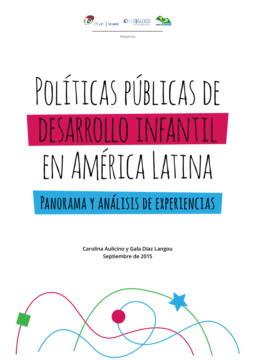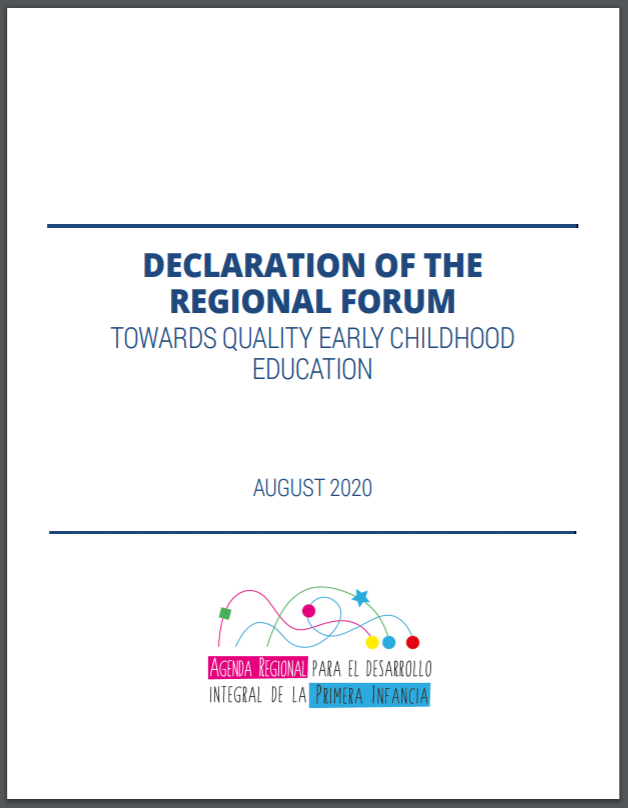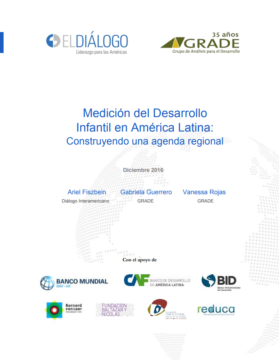
An Agenda for Early Childhood Development
Early childhood development is one of the investments with the highest returns and allows us to achieve, simultaneously, equity and efficiency objectives.
This post is also available in: Español
Ensuring the quality of early childhood education is critical for laying the bases for the learning and development of all children in the region. The Regional Agenda for Integral Early Childhood Development accords a prominent place to the objective of attaining quality early childhood education. The second agreement in that Agenda calls on all countries to “strengthen efforts the achieve quality, relevant, and timely integral services geared to early childhood in the environments in which the children’s lives unfold”; and it identifies the need to establish “systems for quality assurance of governmental and non-governmental services geared to this population that are based on the expected integral development of children.”
The Regional Forum on Quality in Early Childhood Education met virtually from May to July 2020 to agree upon common strategies and recommendations for attaining the objective of quality in early childhood education, as called for in the Regional Agenda. These meetings included the participation of representatives of the ministries and agencies responsible for early childhood education, experts, and representatives of civil society organizations and cooperation agencies.
Eight key recommendations were identified to improve the quality of early education: a vision of quality, quality assurance systems, strengthening families, training families, measuring quality, competencies and certification, valuing early childhood educators and caregivers, and a forum for regional exchange.
Early childhood development is one of the investments with the highest returns and allows us to achieve, simultaneously, equity and efficiency objectives.
Measuring early childhood development (ECD) at the national level is crucial for informing policy-making and for evaluating ECD programs in Latin America.
La importancia de los primeros años de vida sobre la formación del capital humano es ampliamente reconocida. ¿Cómo podemos asegurar una oferta de servicios de calidad?


